Listen to this episode on Spotify or Apple Podcasts
In Deuteronomy Moses famously taught the Jewish people the Shema–the heart of Judaism. He told them to repeat those words day in and day out: when they sit, when they walk, whey they lie down, and when they rise. In fact God built many mechanisms to remember him into the scriptures.
What about us Christians? How can we build routines to likewise remember God throughout our day, week, month, and year?
I shared this message at a weekend event, called Revive, last year. You may not recognize some of the references, but most of it should make sense. Also, during the sermon I played two videos I took of the Western Wall in Jerusalem. I’ve uploaded them to the Restitutio YouTube channel and posted them on Restitutio.org so you can watch them, if you’re curious.
—— Links ——
- Listen to the other messages from past Revive events
- Information is available about attending Family Camp here or other Living Hope events here.
- Get the transcript of this episode
- Support Restitutio by donating here
- Join our Restitutio Facebook Group and follow Sean Finnegan on Twitter @RestitutioSF
- Leave a voice message via SpeakPipe with questions or comments and we may play them out on the air
- Intro music: Good Vibes by MBB Attribution-ShareAlike 3.0 Unported (CC BY-SA 3.0) Free Download / Stream: Music promoted by Audio Library.
- Who is Sean Finnegan? Read his bio here
—— Notes ——
Remember
story of Akiva and the water dripping in a cave
story of Akiva’s supportive wife who married him though he was poor, but made him promise to go away to study
around the time of the 3rd Jewish-Roman War (Bar Kokhba Revolt), Emperor Hadrian outlawed the teaching of Torah in the land on pain of death
– Rabbi Akiva kept teaching
story of his arrest and martyrdom [Talmud, Berakhot 61b, cited from Sefaria: https://www.sefaria.org/Berakhot.61b.9?lang=bi&with=all&lang2=en, accessed Jan 3, 2023.]
– Talmud: “The Gemara relates: When they took Rabbi Akiva out to be executed, it was time for the recitation of Shema. And they were raking his flesh with iron combs, and he was reciting Shema, thereby accepting upon himself the yoke of Heaven. His students said to him: Our teacher, even now, as you suffer, you recite Shema? He said to them: All my days I have been troubled by the verse: With all your soul, meaning: Even if God takes your soul. I said to myself: When will the opportunity be afforded me to fulfill this verse? Now that it has been afforded me, shall I not fulfill it? He prolonged his uttering of the word: One, until his soul left his body as he uttered his final word: One.”
דְבָרִים 6.4-5
שְׁמַ֖ע יִשְׂרָאֵ֑ל יְהוָ֥ה אֱלֹהֵ֖ינוּ יְהוָ֥ה ׀ אֶחָֽד׃ 5 וְאָ֣הַבְתָּ֔ אֵ֖ת יְהוָ֣ה אֱלֹהֶ֑יךָ בְּכָל־לְבָבְךָ֥ וּבְכָל־נַפְשְׁךָ֖ וּבְכָל־מְאֹדֶֽךָ׃
Deuteronomy 6.4-5
4 “Hear, O Israel: Yahweh our God, Yahweh is one. 5 You shall love Yahweh your God with all your heart and with all your soul and with all your might.
The Shema is the core of Judaism
– JPS Commentary: “The Shema’s fundamental significance in Judaism is reflected in the many roles it plays and the special way it is treated. The rules for its recitation are the very first subject dealt with in the Talmud (Tractate Berakhot). Its first verse must be recited with full concentration on its meaning. To prevent distraction one must cover one’s eyes when reciting it, and there are restrictions as to whom one may greet while reciting it. A child must be taught the Shema and Deuteronomy 33:4 immediately upon learning to speak. The first paragraph is recited in bed upon retiring and on one’s deathbed. Following the reported precedent of Rabbi Akiba, it has been recited before martyrdom from ancient times through the present. All of this is due to the fact that the Shema serves as the quintessential expression of the most fundamental belief and commitment of Judaism.” [Tigay, Jeffrey H., Deuteronomy The JPS Torah Commentary, version 3.2. Jewish Publication Society: 1996, Philadelphia.]
The Shema is not just the core of Judaism
– it’s also the core of Christianity
– why? ‘cause the founder of Christianity, Christ himself, said so
Mark 12.28–34
28 And one of the scribes came up and heard them disputing with one another, and seeing that he answered them well, asked him, “Which commandment is the most important of all?” 29 Jesus answered, “The most important is, ‘Hear, O Israel: The Lord our God, the Lord is one. 30 And you shall love the Lord your God with all your heart and with all your soul and with all your mind and with all your strength.’ 31 The second is this: ‘You shall love your neighbor as yourself.’ There is no other commandment greater than these.” 32 And the scribe said to him, “You are right, Teacher. You have truly said that he is one, and there is no other besides him. 33 And to love him with all the heart and with all the understanding and with all the strength, and to love one’s neighbor as oneself, is much more than all whole burnt offerings and sacrifices.” 34 And when Jesus saw that he answered wisely, he said to him, “You are not far from the kingdom of God.” And after that no one dared to ask him any more questions.
But, here’s the question
– you’ve got these two absolutely central truths
o Yahweh our God is one
o love him with everything
– how do you ensure your great grandchildren will hold the Shema in their heart
o how can you make it unavoidable for them?
back to Deuteronomy
– let’s read this together
– Deuteronomy 6.4-5
4 “Hear, O Israel: Yahweh our God, Yahweh is one. 5 You shall love Yahweh your God with all your heart and with all your soul and with all your might.
then it continues
וְהָי֞וּ הַדְּבָרִ֣ים הָאֵ֗לֶּה אֲשֶׁ֨ר אָנֹכִ֧י מְצַוְּךָ֛ הַיּ֖וֹם עַל־לְבָבֶֽךָ׃ וְשִׁנַּנְתָּ֣ם לְבָנֶ֔יךָ וְדִבַּרְתָּ֖ בָּ֑ם בְּשִׁבְתְּךָ֤ בְּבֵיתֶ֙ךָ֙ וּבְלֶכְתְּךָ֣ בַדֶּ֔רֶךְ וּֽבְשָׁכְבְּךָ֖ וּבְקוּמֶֽךָ׃
Deuteronomy 6.6-7
6 And these words that I command you today shall be on your heart. 7 You shall teach them diligently to your children, and shall talk of them when you sit in your house, and when you walk by the way, and when you lie down, and when you rise.
– on your heart: cherished, inside you, unforgettable
– teach diligently = שִׁנֵן repeat, recite again and again
o the command to is to say these words over and over, repeat, repeat, repeat
o when you sit
o when you walk
o when you lie down
o when you rise
– the Shema was God’s brilliant idea to ensure his people passed on their beliefs to the next generation
– especially when that belief (monotheism) goes against what every other tribe and people and nation around them believe
וּקְשַׁרְתָּ֥ם לְא֖וֹת עַל־יָדֶ֑ךָ וְהָי֥וּ לְטֹטָפֹ֖ת בֵּ֥ין עֵינֶֽיךָ׃
Deuteronomy 6.8
You shall bind them as a sign on your hand, and they shall be as frontlets between your eyes.
– this is called tefillin
– Jewish prayer
– literally place these words, the shema, on their head and bind them on their hand every single day!
– video 1: cave in western wall in Jerusalem
– video 2: western wall in Jerusalem
– this physical act ensured the people would remember
וּכְתַבְתָּ֛ם עַל־מְזוּזֹ֥ת בֵּיתֶ֖ךָ וּבִשְׁעָרֶֽיךָ׃
Deuteronomy 6.9
You shall write them on the doorposts of your house and on your gates.
– mezuzah
– upon entry you touch the mezuzah then kiss your fingers
think about how God designed this whole shema system so they would remember
– put together a super simple creed
o Yahweh our God; Yahweh is one
o Love him with all heart, all soul, all strength
o commanded them to obsessively repeat these words
in the house
on the road
when they lie down
when they rise up
constantly muttering to themselves and their children, repeat, repeat, repeat
o then told them to wear the scripture
bind it on your hand
bind it on your head between your eyes
o then told them to put the creed on their village gate as well as on their door post
– now, it’s true the Israelite people wandered into idol worship, especially during the time of the kings
– but, they came back and for the last 2500 years, they’ve been faithful to this day
story about reuniting children after Nazis fell
– In 1945, Rabbi Eliezer Silver was sent to Europe to help reclaim Jewish children who had been hidden during the Holocaust with non-Jewish families. How was he able to discover the Jewish children? He would go to gatherings of children and loudly proclaim Shema Yisrael – “Hear O Israel, the Lord our God, the Lord is One.”
Then he would look at the faces of the children for those with tears in their eyes – those children whose distant memory of being Jewish was their mothers putting them to bed each night and saying the Shema with them.
– thousands of years later, mothers are still saying the shema with their children at bed time!
o wow.
God used all kinds of other ways to get the people to remember
– annual Passover meal is to remember how God delivered them from Egypt (Ex 12.25-27; 13.3)
– annual feast of booths was to remember how they lived in tents after they left Egypt before they entered the promised land
– they also wore tassels on the corners of their garments
o Numbers 15.37–39 37 The LORD said to Moses, 38 “Speak to the people of Israel, and tell them to make tassels on the corners of their garments throughout their generations, and to put a cord of blue on the tassel of each corner. 39 And it shall be a tassel for you to look at and remember all the commandments of the LORD, to do them, not to follow after your own heart and your own eyes, which you are inclined to whore after.
– even the weekly Sabbath (no work on Saturday) was to remind them that they had been slaves in Egypt and now they didn’t have to work 7 days a week (Dt 5.15)
– at one point God had Joshua set up a monument of stone, covering it in plaster, and have it inscribed with the commandments (Dt 27.8)
What drove all of these physical and calendar reminders?
– God was worried they would forget
– let’s pick it up in the next verse after the mezuzot
– Deuteronomy 6.10-15
10 “And when the LORD your God brings you into the land that he swore to your fathers, to Abraham, to Isaac, and to Jacob, to give you—with great and good cities that you did not build, 11 and houses full of all good things that you did not fill, and cisterns that you did not dig, and vineyards and olive trees that you did not plant—and when you eat and are full, 12 then take care lest you forget the LORD, who brought you out of the land of Egypt, out of the house of slavery. 13 It is the LORD your God you shall fear. Him you shall serve and by his name you shall swear. 14 You shall not go after other gods, the gods of the peoples who are around you— 15 for the LORD your God in your midst is a jealous God—lest the anger of the LORD your God be kindled against you, and he destroy you from off the face of the earth.
– Deuteronomy 4.23
Take care, lest you forget the covenant of the LORD your God, which he made with you, and make a carved image, the form of anything that the LORD your God has forbidden you.
– Deuteronomy 8.11 “Take care lest you forget the LORD your God by not keeping his commandments and his rules and his statutes, which I command you today
What does this have to do with you, today?
– no longer under the Jewish law
– though you have freedom in Christ to do any of it that you would like
– if you wanna buy some tefillin and a mezuzah, that’s not going to hurt
– so, I’m not trying to put you under the law
– but, I want you to ask the question, what can you do to remember?
We live in an age that is secular and antagonistic to our faith
– if you do nothing, you’ll forget to pray
– if you do nothing, you’ll forget to read your bible
– if you do nothing, you’ll forget to teach your kids
– if you do nothing, you’ll forget what you know
– your faith will slowly, gently, fizzle out and die
so what are you going to do?
– how can you remember?
– this is a key to staying grounded
– remember
Psalm 42.3–6
3 My tears have been my food day and night, while they say to me all the day long, “Where is your God?” 4 These things I remember, as I pour out my soul: how I would go with the throng and lead them in procession to the house of God with glad shouts and songs of praise, a multitude keeping festival. 5 Why are you cast down, O my soul, and why are you in turmoil within me? Hope in God; for I shall again praise him, my salvation 6 and my God. My soul is cast down within me; therefore I remember you from the land of Jordan and of Hermon, from Mount Mizar.
how can you remember?
– what annual, monthly, weekly, and daily customs can you take advantage of to remember?
here are some suggestions
– read the bible daily
– I hang a cross from my rearview mirror so when I drive I see it
– artwork in the house
– Christian t-shirts
– Christian music
– reciting memorized scripture
– follow Christian content creators on social media
– events
– weekly Sunday service
– mid-week fellowship
– classes
‘cause in the end God won’t forget
Deuteronomy 4.31
For the LORD your God is a merciful God. He will not leave you or destroy you or forget the covenant with your fathers that he swore to them.

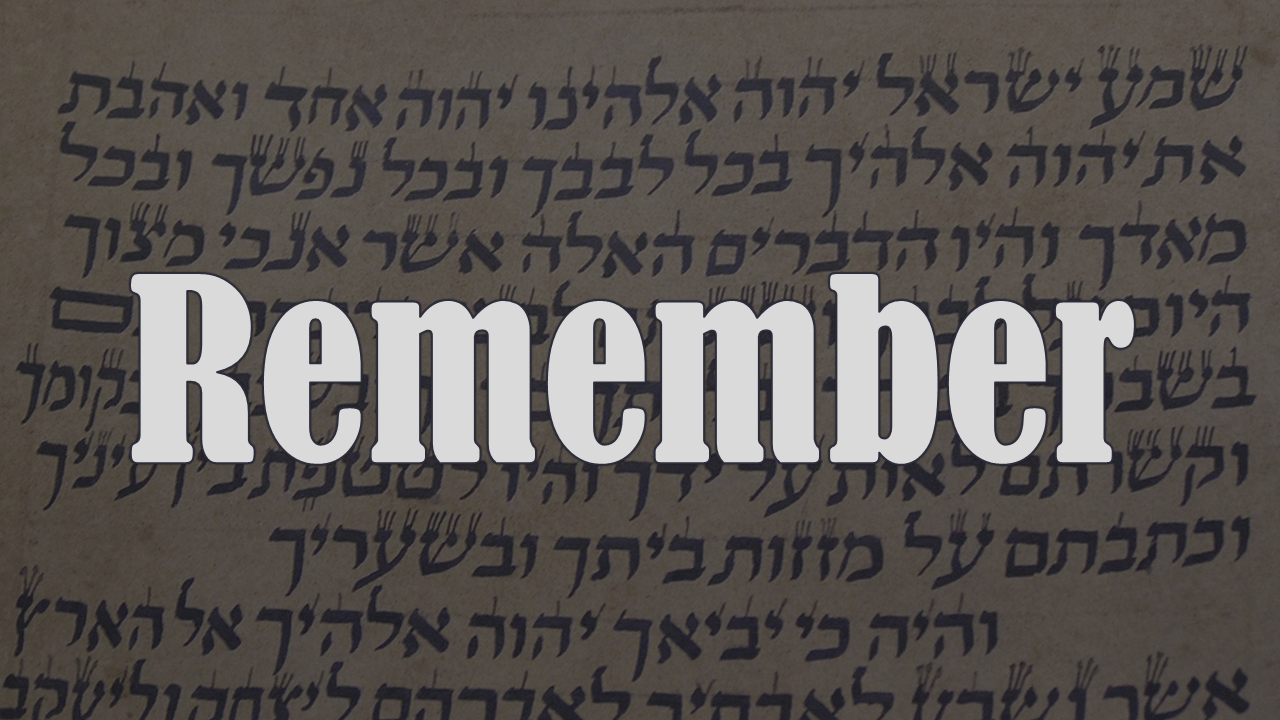
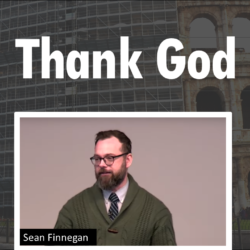
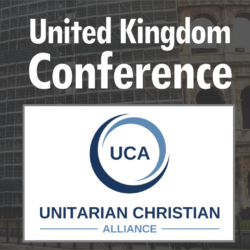
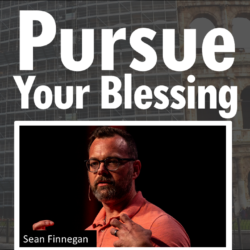
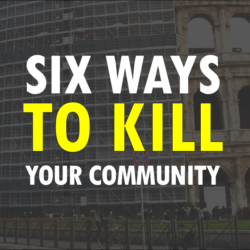
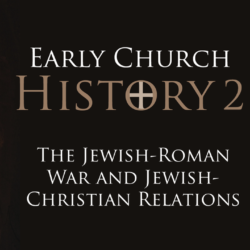
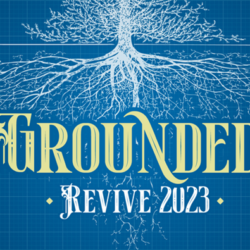
Do you have your book available in Kindle format as well?